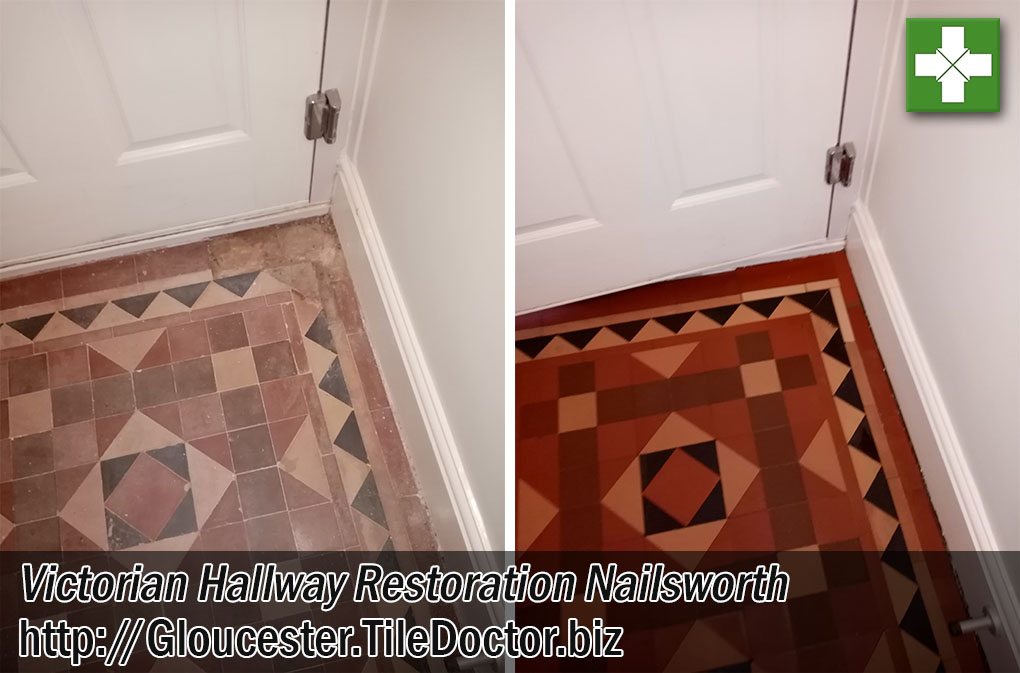Restoring a Victorian Tiled Hallway in Nailsworth
This Victorian tiled hallway floor at a property in Nailsworth needed repairs to four areas and then required a deep clean and seal. The client was unsure if this was something, we would be able to help with but after speaking to him on the phone and review the photographs he sent over I reassured him it should be possible.
 |  |
The owner was keen to progress to I arranged an appointment to visit the property and survey the floor to get a better idea of the issues and provide a price for fully restoring the floor to the best condition possible. As the pictures show the Victorian tiles looked dull and washed out, there were also white paint spots on the tiles. I was confident the floor could be saved, and the owner was happy with my quote, so we scheduled a date for the work to start.
Repairing and Cleaning and a Victorian Tiled Hallway Floor
I spent the first day repairing the floor which in most cases requires carefully lifting the old tiles, scraping out the adhesive and cement and then re-fixing the original tile or a replacement back in place. We are usually able to source replacement tiles, either reclaimed or reproduction and we had managed to find some to match this floor. It’s a slow process and with four areas of Victorian flooring in need of attention so this step took up much of the first day. The floor was left to dry overnight so the adhesive would set.
On the second day I deep cleaned the tiles with a 200-grit diamond pad fitted to a rotary buffer using water to lubricate. The resultant slurry was then extracted with a wet vacuum and the process was repeated with a 400-grit burnishing pad. All the edges were done with water and small handheld diamond blocks as the rotary machine was too large to reach the corners and edges.
To finish the cleaning I treated the tiles to an acid wash using Tile Doctor Grout Clean Up which as well as removing any old grout smears would neutralise any efflorescent salts contained within the floor which can be problem on old floors like this that don’t have a damp proof membrane installed. Another advantage of doing this is that you achieve a stronger bond between the sealer and the tile.
Sealing a Victorian Tiled Hallway Floor
The floor was left to dry for 3 days after which I returned to seal it. Before starting thought I took some moisture readings with the damp meter. Once I was satisfied, I started applying the first of what would be five coats of sealer and for this floor I chose Tile Doctor Seal and Go Extra. There were several reasons for choice including the satin finish however my main thought was the age of the floor which meant it would not have a damp-proof membrane installed so any moisture would need to rise through the tile without being impeded, Seal and Go extra allows for this.
 |  |
My customer was really pleased with the result and happy to have the floor restored back to its original state.

Source: Professional Restoration of a Victorian Tiled Hallway in the Cotswolds
